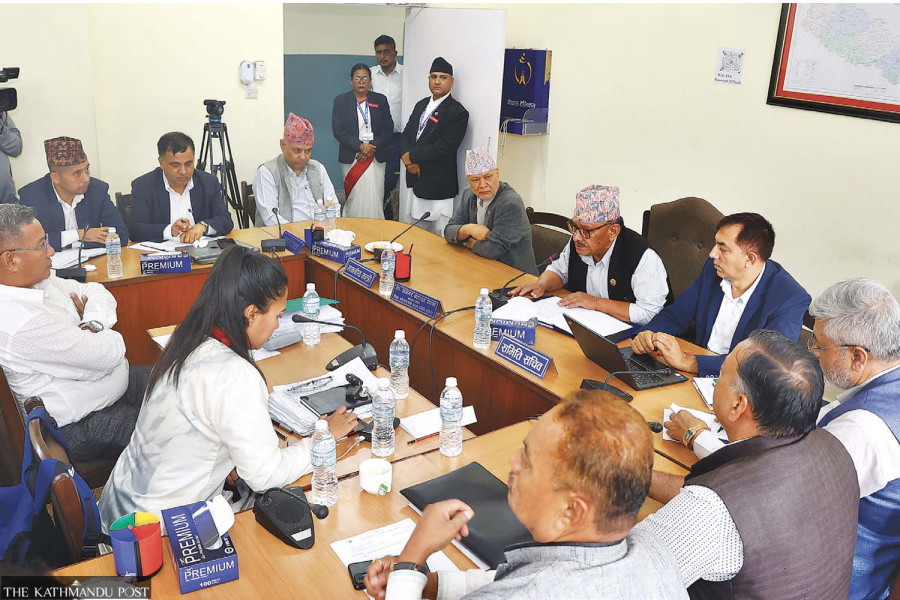National
Private schools double down on threats to protest education bill
They vehemently oppose bill’s provisions on scholarship coverage, fee controls by local governments, and mandatory non-profit transition.
Binod Ghimire
Private education providers have taken strong objections to the agreement reached by the parliamentary committee regarding the provisions related to private schools in the School Education Bill.
The Private and Boarding Schools’ Organisation, Nepal and the Higher Institutions and Secondary Schools’Association Nepal, among others, issuing a statement on Sunday, have demanded revisions to some provisions in the bill and have warned of protests if their demands are not heeded by Wednesday.
The Education, Health and Information Technology Committee of the House of Representatives on June 27 had finalised most of the provisions, barring a few. On Thursday, the committee finalised most of the issues and assigned its secretariat to prepare a report to incorporate the provisions which envision making private schools service-oriented, welfare-based and eventually non-profit. Even as the bill does not specifically talk about the ways to turn privately owned schools into non-profits, the umbrella bodies have warned against including the provision in the bill. “If our concerns are not addressed by August 13, we will be forced to launch a protest from the very next day,” reads their joint statement.
Through the joint statement they have also demanded the removal of the provision relating to full scholarship. Instead, they want to continue the existing provision of providing scholarships to only 10 percent of the total students but not full. They further demanded that scholarships should cover only admission, annual, and monthly tuition fees.
Following discussions on the bill, the committee had also agreed to allow new private schools to be opened under a company registration. While drafting the bill, the government had initially proposed converting private schools into trusts, but after lobbying by private school operators, including with Prime Minister KP Sharma Oli and top leaders of major political parties, it was agreed that existing schools would remain as companies and new schools could also be registered as companies.
Though the Constitution of Nepal envisions school education as a fundamental right, the bill has allowed schools to operate as profit-making entities. Yet, private schools remain dissatisfied.
Some lawmakers had proposed amendments requiring the conversion of existing private schools into educational trusts within five to twenty years. However, under pressure from private school operators, the parliamentary committee went even further than the government’s original bill and decided that existing schools would remain as companies and new ones could also be registered as companies.
The bill also passed provisions requiring private schools to make public their fee structures two months before the start of the academic session, and to collect fees only under headings and limits set by the local government concerned.
Lawmakers are unanimous that scholarships should be divided equally between economically disadvantaged and meritorious students. Some lawmakers also demanded that scholarships should include accommodation costs, but after Nepali Congress chief whip Shyam Kumar Ghimire and Education Minister Raghuraj Pant openly supported private schools, no agreement could be reached on this point.
The sub-committee had earlier included accommodation in scholarships. Under the government’s proposal, scholarships should cover tuition fees, examination fees, textbooks and learning materials, uniforms, transportation, and other fees. While the sub-committee had proposed including accommodation, the consultation committee later removed it. It was agreed that uniforms would be provided only to poor and disadvantaged students. Schools must determine the number of seats available for scholarships at the beginning of each academic session, submit details to the relevant rural or municipal authorities, and make the information available on their websites.
The bill also contains an agreement that schools operating with private investment must provide scholarships as “full scholarships” as per the provisions of prevailing education-related laws—although it is unclear which specific law this refers to.
The eighth amendment to the Education Act had prohibited opening profit-making private schools and required new schools to be opened as trusts, while allowing existing schools to continue operating as companies. The government registered the current bill in parliament in September 2023 but has faced opposition from various quarters.




 10.12°C Kathmandu
10.12°C Kathmandu















